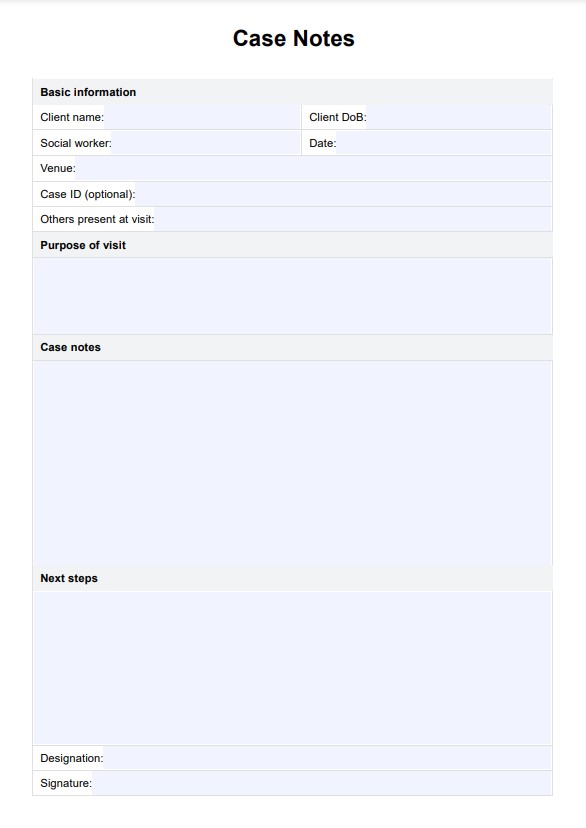To write an effective case note, use clear, objective language to document the client's current status, progress, and any significant events or interventions during the session. Structure the note chronologically, including the session's date, time, and duration. Avoid jargon or abbreviations, and ensure the note is legible and well-organized.

Case Notes Template
Create polished case notes for your social work clients using our free Case Notes Template.
Case Notes Template Template
Commonly asked questions
Case notes should be detailed enough to provide a comprehensive record of the client's treatment and progress but concise enough to be easily readable. They should include relevant details about the client's mental status, behavior, and responses to interventions, as well as any new information or insights gained during the session.
Essential information that must be included in case notes includes the client's name, date of birth, and any relevant identifying information. The note should also include the date, time, and duration of the session and the name and credentials of the clinician writing the note. Additionally, the note should document the client's presenting problem, any relevant history, the treatment plan, and any specific interventions or recommendations made during the session.
EHR and practice management software
Get started for free
*No credit card required
Free
$0/usd
Unlimited clients
Telehealth
1GB of storage
Client portal text
Automated billing and online payments











